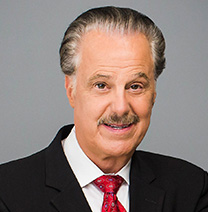The Israeli Air Force targeted multiple Hezbollah positions across Lebanon on Monday after the group violated a ceasefire by launching two mortar grenades at northern Israel.
The Israeli Defense Forces (IDF) said the airstrikes hit Hezbollah terrorists, rocket launchers, and other infrastructure throughout Lebanon, including a Hezbollah launcher in southern Lebanon shortly after the mortar fire.
Lebanese authorities, who do not distinguish between civilians and Hezbollah members, reported ten deaths from the Israeli airstrikes. Attacks were concentrated in southern Lebanon, including Bint Jbeil and Marjayoun, as well as in the Hermel region near the northern border and at several border posts in Syria’s Homs province.
The U.S. and France have urged the U.N. Security Council to meet on Wednesday to discuss the state of the ceasefire. Both countries have accused Israel of violating the agreement in recent days.
The IDF called Hezbollah’s mortar fire a violation of the ceasefire, stating that Israel expects Lebanon to prevent Hezbollah’s hostile actions from its territory. The military reaffirmed Israel’s commitment to the ceasefire while also signaling readiness to continue operations to protect Israeli civilians.
The mortar attack marked the first offensive violation of the ceasefire, which other incidents had already breached. Israeli leaders, including Benny Gantz, called for a strong response. Gantz warned that failing to react firmly could lead to a return to previous patterns of escalating violence. Mark Dubowitz, CEO of the Foundation for Defense of Democracies, echoed this view, stating that Israel could no longer tolerate limited violations and must act decisively to ensure Hezbollah understands the consequences.
However, Israeli military correspondent Doron Kadosh criticized the response, pointing out that no targets were hit in or around Beirut, where many had expected a stronger retaliation. Kadosh questioned the effectiveness of the strikes, noting that most targets were in southern Lebanon, where Hezbollah is not supposed to have armed forces.
U.S. State Department spokesman Matthew Miller maintained that the ceasefire had not collapsed despite the cross-border strikes. He confirmed that an enforcement committee was investigating the claims of violations from both sides and said the U.S. would continue to monitor the situation closely.
